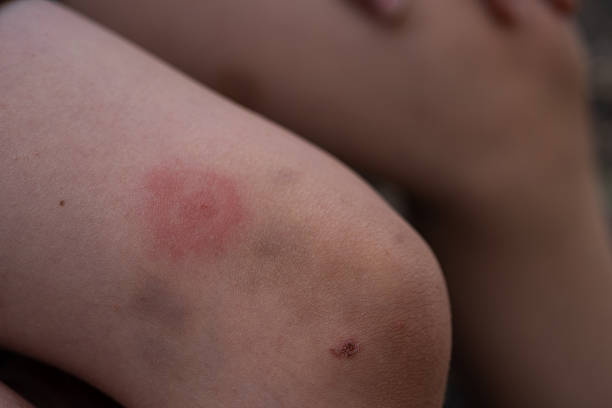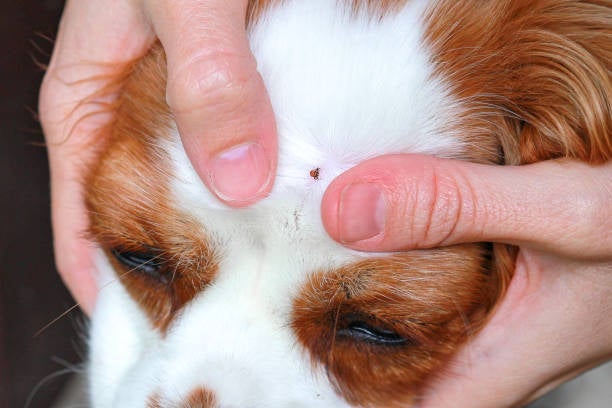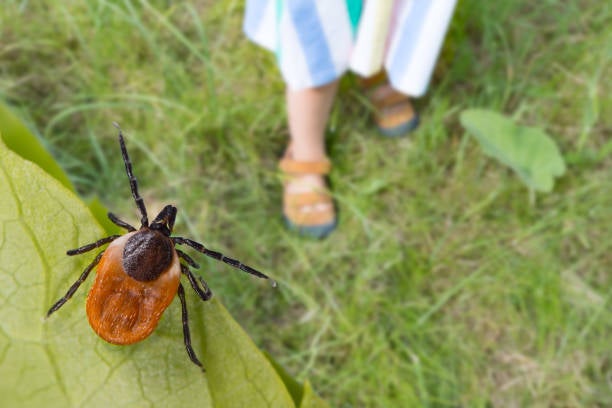The relatively mild winter in the CSRA this year has created the perfect environment for a surge in the tick population and experts say people should be vigilant against the parasite.
Ticks carry an assortment of diseases, some fatal and others that might not kill you, but will definitely ruin your week.
When I was growing up, a kid in my Sunday school class tragically lost his life due to a brush with a tick.
It happened in a small town north of Spartanburg, S.C. in the early 1980s. A 10 year old boy, “Charley,” spent an afternoon roaming the woods with his friends, enjoying the freedom of being out of school for summer.
At bath time, Charlie noticed a small spot on his calf, inspecting closer, he realized it was a tick and he pulled the little critter off his skin and flushed it.
Gross! Charlie thought, and then forgot about the bothersome tick.
A week later, Charlie didn’t feel like meeting his friends and told his mother he thought he had a summertime flu.

Two days later, Charlie was taken to the ER due to a rash that formed on his abdomen. What was initially thought to be a summer bug was getting worse. Not only did the child have muscle aches, but he was vomiting up everything he was given, including Gatorade.
At the hospital, the doctors prescribed an antibiotic and sent the boy home, but Charlie returned only two days later in terrible shape with a fever that was soaring out of control.
By the time that the attending physicians realised they were battling Rock Mountain Spotted Fever, it was too late. Charlie slipped into a coma and died.
The small community was shocked because a tick bite resulting in death carried about the same odds as getting mauled by a shark or struck by lightning.
According to a report by Brigham Young University, human encroachment into the suburbs has changed the ecological dynamic, creating the atmosphere where humans are coming in contact with ticks more and more often. Construction of neighborhoods and golf courses cause spikes in the rodent population, the report says, and ticks prey on mice.
This past week, LPGA player, Leona Maguire, disclosed she is being treated with doxycycline after suffering from tick bites at Erin Hills Golf Course in Wisconsin during the U.S. Women’s Open. The disclosure comes on the heels of a Daily Mail story about a California-based “fitness influencer,” Maria Palen, 31, who has been paralyzed from the waist down due to a pathogen introduced to her via a tick bite.
Daniel Peach, assistant professor at UGA’s Savannah River Ecology Lab, says that aside from being a food source for opossums, ticks provide little to no benefit ecologically.
“At least mosquitoes are occasional pollinators, but ticks don’t even do that,” Peach said.

The most common varieties of tick prevalent in the Southeastern U.S. are the black legged tick, Lone Star tick and American dog tick; between these species, they carry Rocky Mountain Spotted Fever and lyme disease.
The Lone Star tick also carries Alpha-gal syndrome, or Red Meat Syndrome, which infects wild game such as deer and rabbit and can lead to painful abdominal symptoms.

Ticks are considered parasites, but they are also arachnids, similar to spiders. The pests cannot jump, rather they latch onto vegetation and wait until a warm blooded mammal brushes against it, where it can transfer over and bite into the skin.
Experts say that Permethrin, a synthetic insecticide, will ward off ticks, but it is important to only spray the chemicals on clothing, not skin. Products with DEET, such as Off!, are also effective and can be sprayed directly on skin.
It is also important to check pets often as they can bring the pests inside.
If bitten, seek medical attention immediately if the “bullseye” wound grows or if a rash, fever, fatigue or any other flu-like symptoms appear.
Scott Hudson is the Senior Investigative Reporter, Editorial Page Editor and weekly columnist for The Augusta Press. Reach him at scott@theaugustapress.com










